Mozambique: President calls for high-performance centres to tackle sports infrastructure 'Achilles ...
Elections: Little opposition to unchanged election system – By Joseph Hanlon
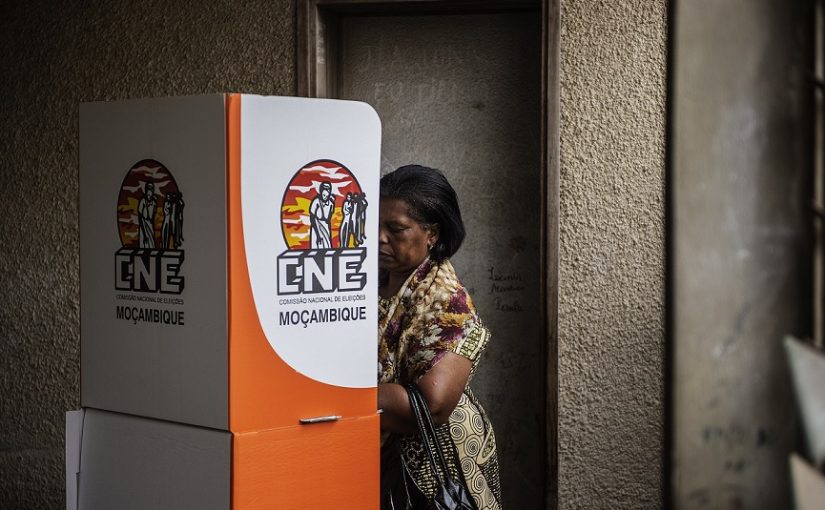
File photo: DW
Parliament on 4 November established an ad hoc commission to select civil society members of the National Elections Commission (CNE). The current law will not be changed. It gives Frelimo a majority on all elections commissions because members at all levels are nominated by the three parties (Frelimo, Renamo, MDM) in proportion to their seats in parliament. The CNE has 17 members – 5 Frelimo, 4 Renamo, 1 MDM, and 7 from civil society. But by convention these “civil society” nominees are party loyalists in the same proportions, guaranteeing the Frelimo majorities.
There was no opposition in parliament and MDM and Renamo nominated their members of the ad hoc commission – 3 Frelimo, 1 Renamo, 1 MDM. Civil Society nominations must be submitted by the end of the month.
Civil society has denounced the continuation, without debate, of a system which so obviously failed in the elections last year. Ten groups involved in election observation issued a statement Wednesday calling for the selection to be stopped and that there at least be public debate on the criteria for civil society nominations and how they are selected. (O Pais 18 Nov, Savana 20 Nov)
Comment: Donor-funded Maputo civil society normally limits itself to issuing statements, which are ignored. There are no big street protests over fraudulent elections, as in Belarus. Elections were once important, but are no longer treated seriously. There has never been a serious political opposition. Donor agencies are now interested in gas and investment rather than governance and did not seriously protest the 2019 elections. Finally, Frelimo has been careful to keep the Maputo middle class comfortable so they do not protest as in Belarus. Inequality, poverty and anger at Frelimo has boiled over in Cabo Delgado, leading to the current civil war. But that is 1800 km from Maputo and Frelimo can ignore the local roots and blame Islamic State.
So it appears that the Maputo middle class and its civil society has accepted that Frelimo, however corrupt, remains the natural party of government. UNU-Wider in its report last week also accepts that, saying major change must come from inside Frelimo. Which suggests that elections will not be taken seriously and protest will remain token. jh
Should Mozambique send election observers to the US?
Since Joe Biden was declared U.S. President-elect a week ago, outgoing President Donald Trump and his Republican allies have doubled down on their baseless allegations that the voting process was fraudulent and that Biden is “stealing” the election with “illegal” votes.
“Allegations of vote manipulation are a classic characteristic of elections in struggling democracies and authoritarian states”, which looks very similar to Donald Trump and his Republican allies’ “baseless allegations that the voting process was fraudulent and that Biden is ‘stealing’ the election with ‘illegal’ votes,” according to Foreign Policy (10 Nov). But fragile democracies have developed election observation to verify elections. https://foreignpolicy.com/2020/11/10/trump-biden-election-vote-fraud-refute/) Could this work in the US? And as Mozambique bars observers, perhaps they could send them to the US for the next elections.
‘Elections have become a conflict-generating mechanism’
“In 25 years of multi-party democracy, elections have become a conflict-generating mechanism; levels of corruption have increased, the political space is restricted to two parties instead of opening up to a large number of actors, institutions of sovereignty have almost all been partyised according to the interest of the ruling party, in a framework in which the state is finally unable to emancipate itself from the clientelism,” warns a new book Multiparty Democracy in Mozambique (Democracia Multipartidária em Moçambique) published by EISA (Electoral Institute for Sustainable Democracy in Mozambique) Mozambique. “For the authors of this book, there is no doubt that to create a common space and a place to satisfy collective needs, a consultation between Mozambicans is more than urgent.”
The book’s 17 chapters cover not just elections, but a broader debate on democracy, decentralisation and civil society. The book, in Portuguese only, can be downloaded free from https://bit.ly/EISA-Democ (5 Mb).
By Joseph Hanlon


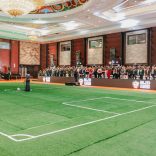
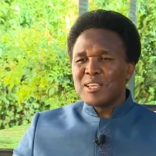

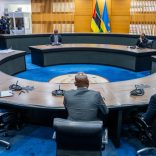
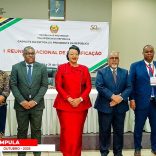
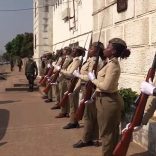




Leave a Reply
Be the First to Comment!
You must be logged in to post a comment.
You must be logged in to post a comment.